Topic: Mars Architecture
Time: March 26 – June 11, 2022
Location: ZOOM hosted by PA
Format: Online
Duration: 6 + 1 Sessions
Total Hours: 28 Hours
Workshop Type: Project-based online studio workshop
Registration Deadline: March20, 2022
Seats Available: 20 Seats
Student Registration: 700 EUR (We will require a confirmation from your university)
General Registration: 1000 EUR
On-demand Recordings: 1250 EUR
Organized By: PAACADEMY
Supported by: Karamba3D, Ameba, Rhino3D
Studio: Studio Valentina Sumini
Tutor: Arch. Eng. Valentina Sumini, Ph.D. and Arch. Marta Rossi
“Mars is there, waiting to be reached.”
Buzz Aldrin
Why Mars?
Is Mars the new frontier of humanity has been the question accompanied by debates. The insatiable quest for life is the main motivation of human beings to explore a promising future on this identical twin of the Earth. Currently, we are able to become inter-planetary civilizations, understand life’s origins, ubiquity and confronting myths, and contemplate alternate stories about the universe. Mars is a perfect target because of the same length of day as Earth, water ice on its surface, and aiding to industries such as medicine or agriculture.
The colonization of Mars in the future would push humanity to its limits, contributing greatly to the excellence of space tourism as a by-product; delivering the feeling of weightlessness, viewing the entire planet, and watching the stars from beyond the earth.
A quote from Sagan: “Whatever the reason you’re on Mars, I’m glad you’re there, and I wish I was with you.”
“If the human race is to continue for another million years, we will have to boldly go where no one has gone before,” Hawking said in 2008 at a lecture series for NASA’s 50th anniversary.
“I think it would be great to be born on Earth and to die on Mars. Just hopefully not at the point of impact.” Elon Musk
“Only by pushing mankind to its limits, to the bottoms of the ocean and into space, will we make discoveries in science and technology that can be adapted to improve life on Earth.” >>> British doctor Alexander Kumar wrote that in a 2012 article for BBC News where he explored the pros and cons of sending humans to Mars
Mars Architecture
The Mars Architecture studio workshop by PAACADEMY is devoted to the exploration of the computational design capabilities applied to space architecture.
The workshop goal is to design a resilient and sustainable infrastructure for human missions on Mars. This new design challenge requires a new design holistic approach, in which computational design plays a key role. Indeed, Space Architecture relies on some fundamental pillars that are intrinsically interconnected: space sciences, engineering, industrial design, ergonomics, medicine, psychology, and art.
Students will be challenged to work in teams within a cross-disciplinary environment at different scales, from urban to architecture and interior design, relying on the knowledge and technologies developed for space applications. A challenge for both space and terrestrial architectures is to consider the relationships between human activities and the resources which support them.
The Mars Architecture Workshop will bring a new computational design approach to this design challenge in order to sustain human space exploration on Mars.
Program:
Week 1 (March 26): Introduction to Space Architecture: a holistic design approach | Design Thinking Activity on Miro | Mission planning and Architectural layout tutorial in Grasshopper 3D (plugins Kangaroo, Weaverbird, OpenNest)
Week 2 (April 2): Introduction to Inflatable Structure in Aerospace | Tutorial for Inflatable Structures and form-finding (plugins Kangaroo and Karamba 3D, Weaverbird)| Project reviews
Week 3 (April 9): Introduction to Radiation Shielding strategies in Space Architecture | Form-finding of the Inflatable Structure and Radiation Shielding (plugins Kangaroo, Karamba 3D, Weaverbird, Ameba) | Project reviews
Week 4 (April 23): Adaptive interiors configurations | Grasshopper 3D Tutorial | Project reviews
Week 5 (May 14): Advanced topology optimization of Radiation Shielding using In Situ Resources on Mars| Form-finding and topology optimization (plugins Weaverbird, Ameba) | Project reviews
Week 6 (May 21): Invited Talks by Dr. Ariel Ekblaw (MIT Media Lab – Space Exploration Initiative, USA), Arch. Vittorio Netti (University of Houston, USA) and Prof. Giuseppe Fallacara (Politecnico di Bari, Italy) | Project reviews
Week 7 (June 11): Final Presentation (special guests might join as a jury)
Software
- Rhinoceros 7.0. The 90-day trial version you can download from the website.
- Grasshopper 3D: For Rhino 6 and 7 is embeded, for Rhino 5 and below you need to download separately.
- Grasshopper 3D Plugins:
- Karamba 3D (Educational License will be provided to all students)
- Ameba: (Educational License will be provided to all students)
- Pufferfish
- Kangaroo
- Weaverbird
- OpenNest
Important Notes:
- Those who register as a student, their registrations will be confirmed after we confirm with their university.
- The Mars Architecture studio workshop by PAACADEMY will start on Thursday, March 26, at 14:00 (CET).
- Total sessions: 6 (teaching sessions) + 1 (final presentation)
- Daily Schedule: 14:00 – 18:00 (CET)
- Each session and the entire studio will be recorded and videos will be available for participants just a day after the class for an unlimited period of time.
- Certificate of attendance will be will provided by PAACADEMY only for students who deliver a final project.
- We accept payments in crypto. Please email us for the details: [email protected].
- The studio has limited seats. Tickets are non-transferable & non-refundable. Please read before you purchase.
Instructors:
Valentina Sumini:
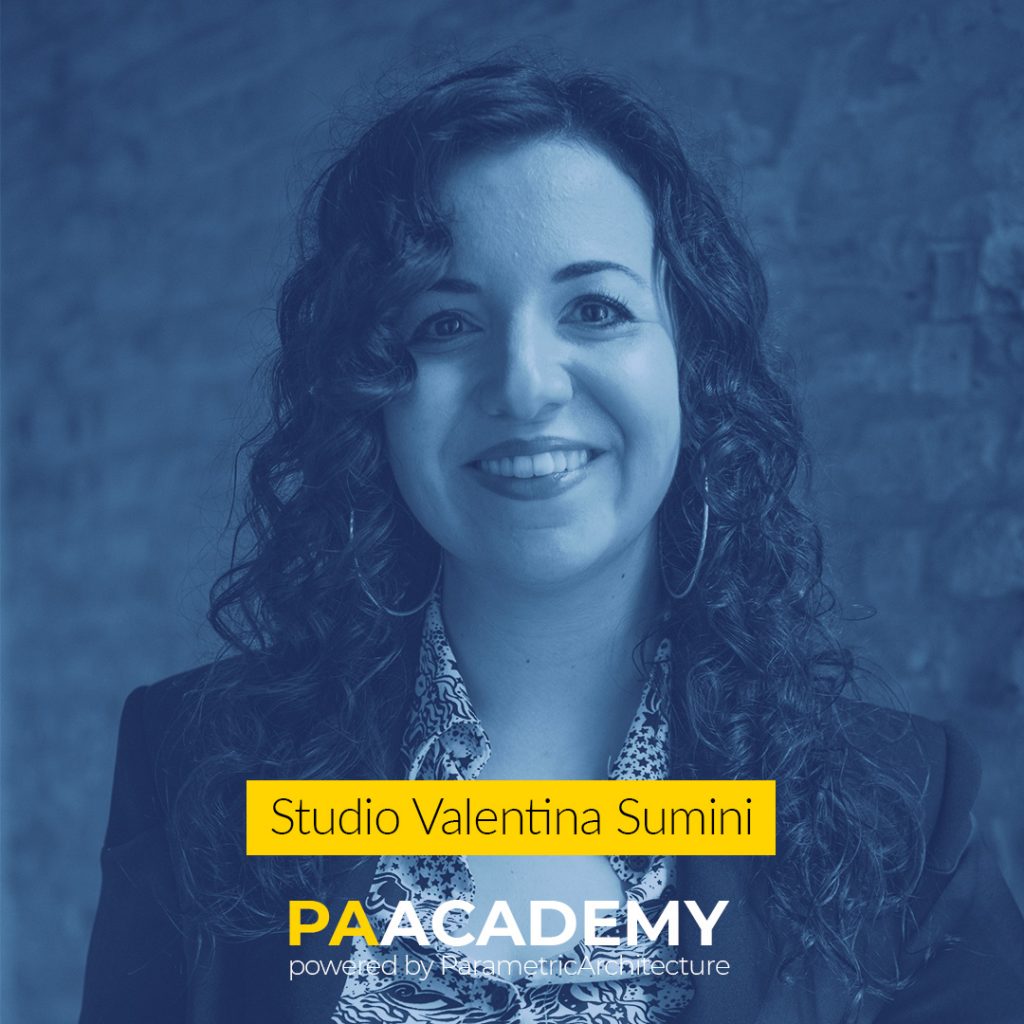
Valentina Sumini, Ph.D., is a space architect who offers computational design solutions supporting human life in extreme environments on Earth and facilitates human space exploration on the Moon and Mars. Valentina is Visiting Professor at Politecnico di Milano. She teaches “Architecture for Human Space Exploration” and created a collaborative classroom with the MIT Media Lab Webinar Series “Design Exploration: towards a Moon Architecture.”
Valentina’s research focuses on developing new computational design methods for multi-performance habitats, soft-robotic prosthetics to facilitate mobility and dexterity in microgravity, textile architecture, and advanced construction techniques using in-situ resources for sustainable human space exploration.
Due to her in-depth studies at MIT Media Lab over several years, she developed various award-winning competition projects mostly organized by international Space Agencies.
Valentina demonstrates her passion for enhancing human performance during deep space exploration missions through a range of projects; namely: a Space Hotel in Low Earth Orbit, a city on Mars and its generative design model, a greenhouse on Mars, an ice extraction system for Mars, a Moon Village, a soft robotic exoskeleton for enhancing astronaut movements in microgravity, and the multi-sensory Tidmarsh Living Observatory Portal to reconnect astronauts with nature during long-duration missions.
These space architecture projects have been presented in several international venues, including Beyond the Cradle at MIT Media Lab, EXPO Dubai 2020 and Biennale di Venezia 2021, Life Beyond Earth, with the Moon Village project collaborating with European Space Agency and Skidmore, Owings, and Merrill.
Currently, she investigates new activities with high sustainability and innovation potential at COESIA Engineering Center.
Additionally, she is an active member of the AIAA Space Architecture Technical Committee and the American Society of Civil Engineers’ Earth and Space Technical Committee to foster and democratize space architecture education across the world.
Marta Rossi:
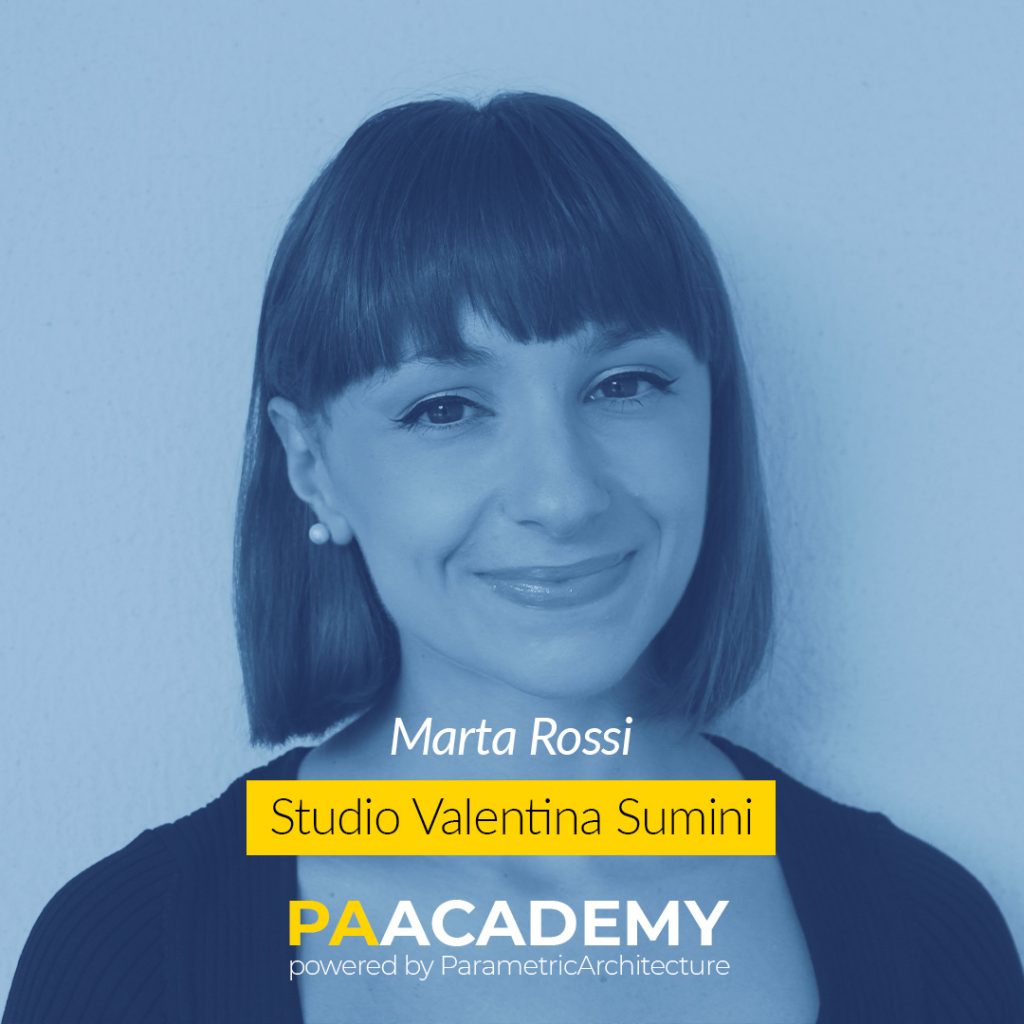
Marta Rossi recently graduated at Politecnico di Milano in Architecture and Urban Design, with a thesis about a space architecture project for a human habitat on Mars, using computational design tools.
She has been a Teaching Assistant for the course “Architecture for Human Space Exploration” at Politecnico di Milano with professor Valentina Sumini. They assisted students’ Space Architecture projects based on the Moon and Mars and taught how to use computational design software in order to generate innovative form-finding solutions for extra-planetary settlements. The teaching activity has been collaborative with MIT Media Lab Webinar Series “Design Exploration: towards a Moon Architecture”.
She currently works at a design studio in Milan and she is keeping increasing her knowledge in space architecture and computational design.
Topic: Mars Architecture
Time: March 26 – June 11, 2022
Location: ZOOM hosted by PA
Format: Online
Duration: 6 + 1 Sessions
Total Hours: 28 Hours
Workshop Type: Project-based online studio workshop
Registration Deadline: March20, 2022
Seats Available: 20 Seats
Student Registration: 700 EUR (We will require a confirmation from your university)
General Registration: 1000 EUR
On-demand Recordings: 1250 EUR
Organized By: PAACADEMY
Supported by: Karamba3D, Ameba, Rhino3D
Studio: Studio Valentina Sumini
Tutor: Arch. Eng. Valentina Sumini, Ph.D. and Arch. Marta Rossi
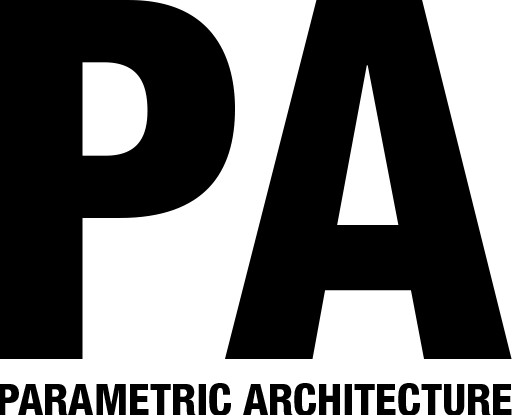



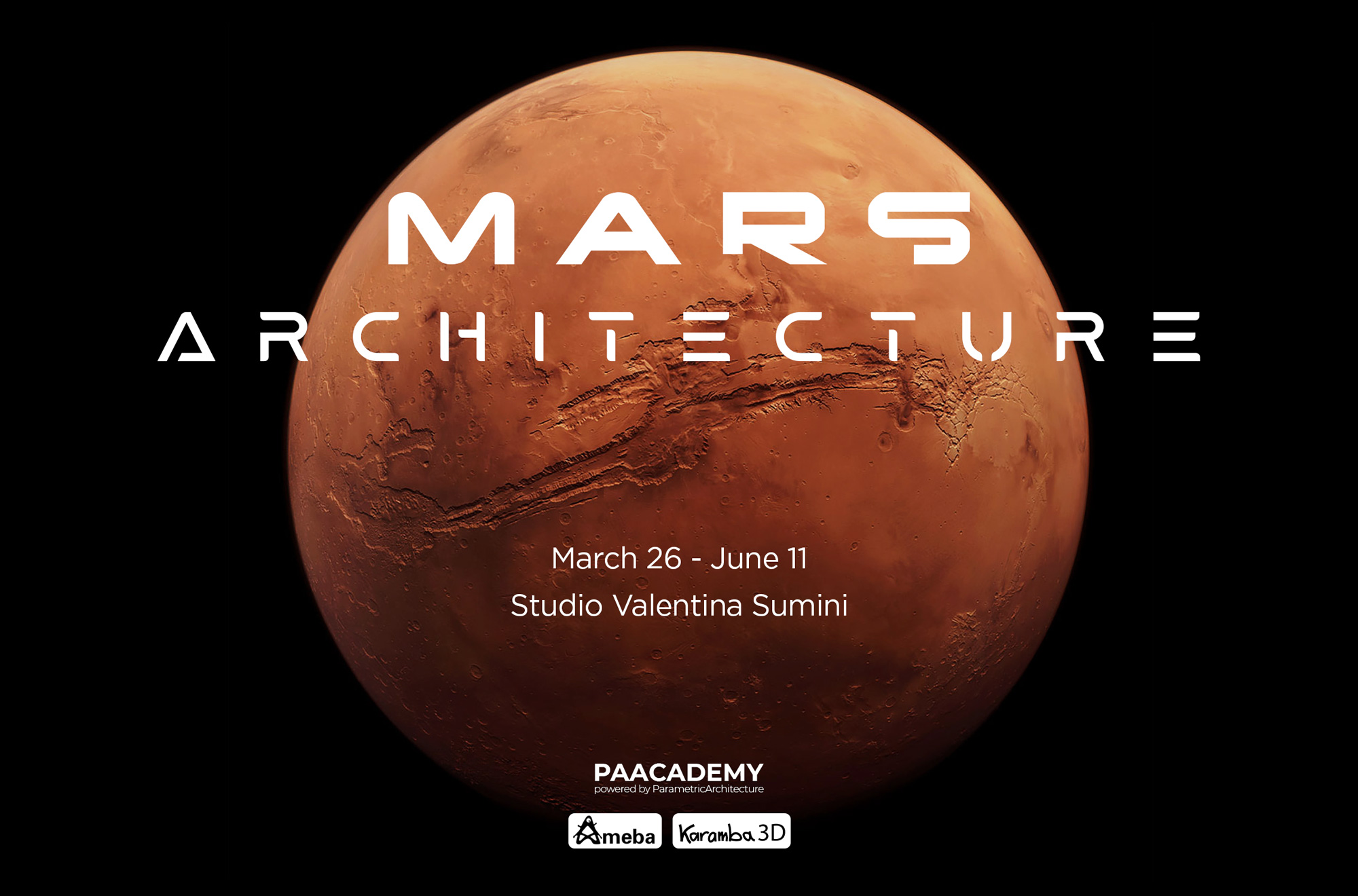
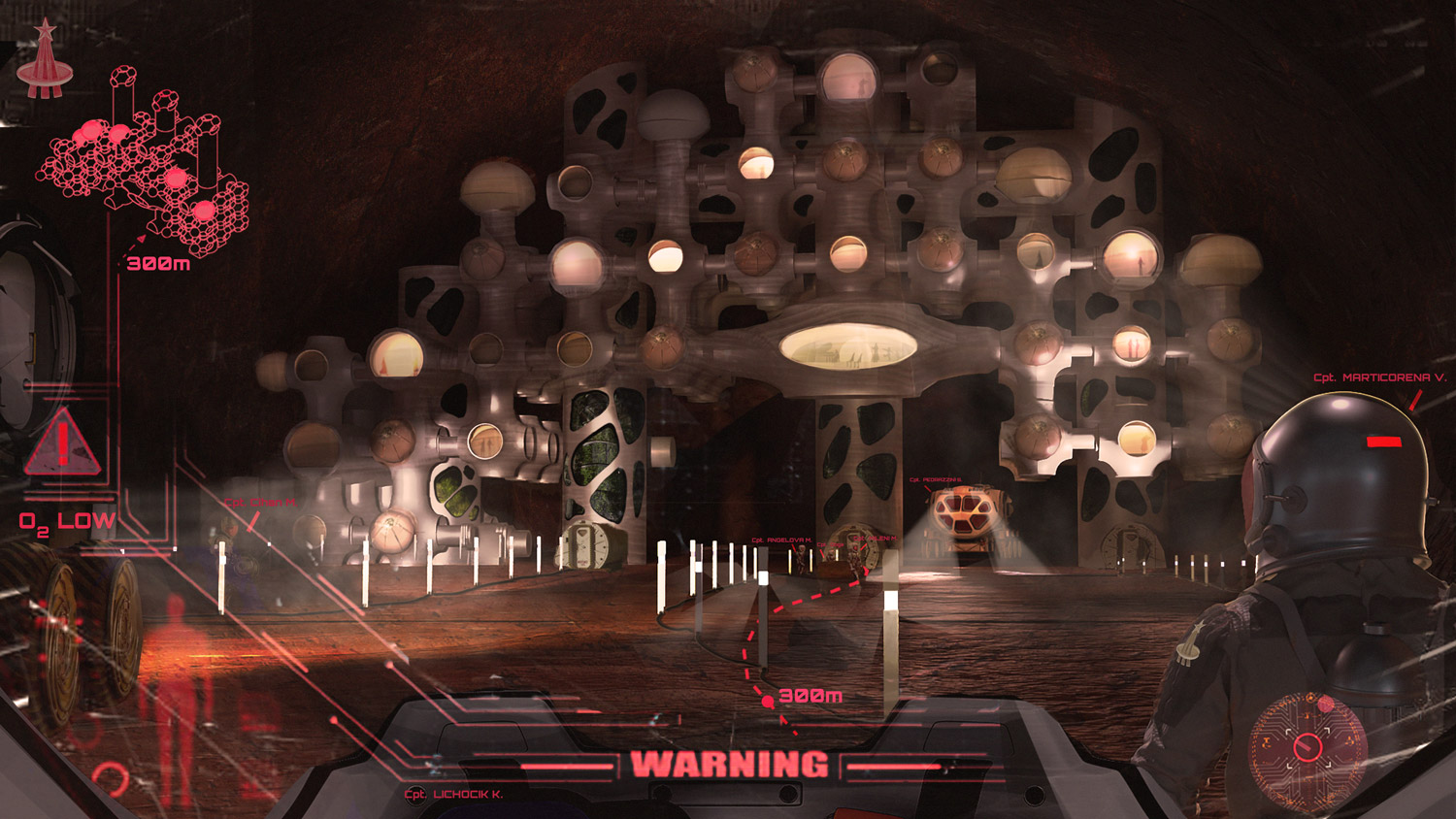
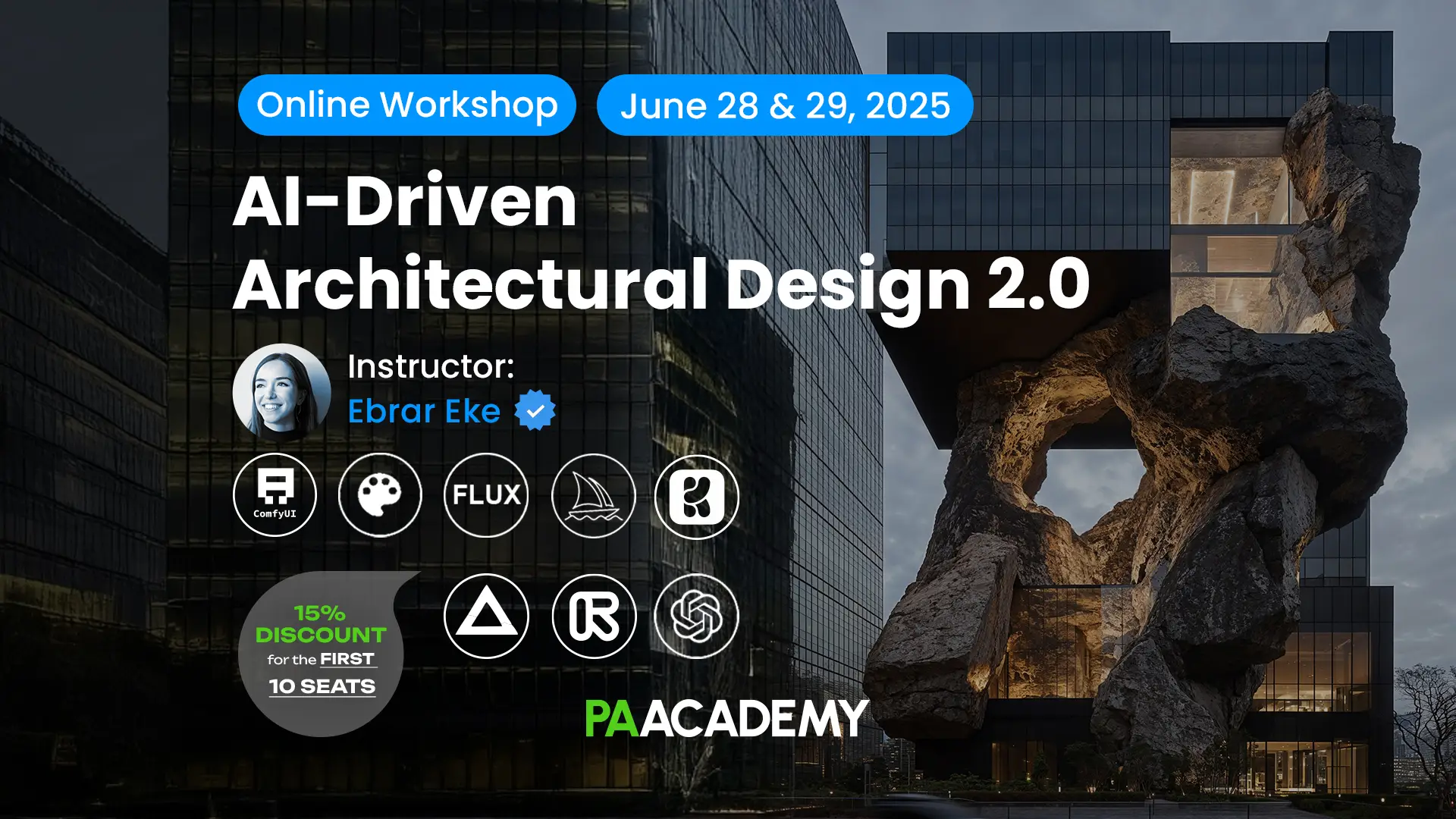
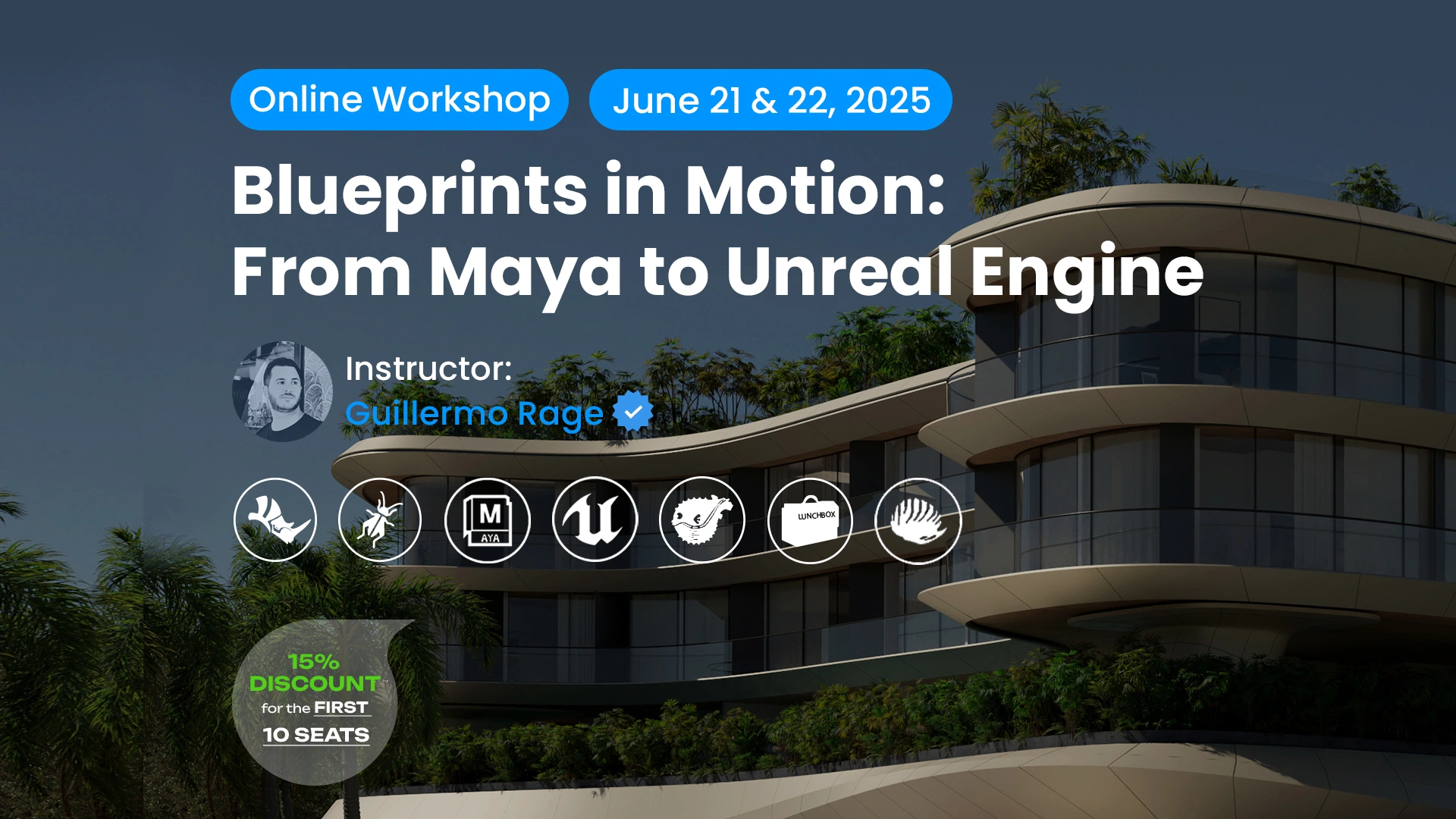
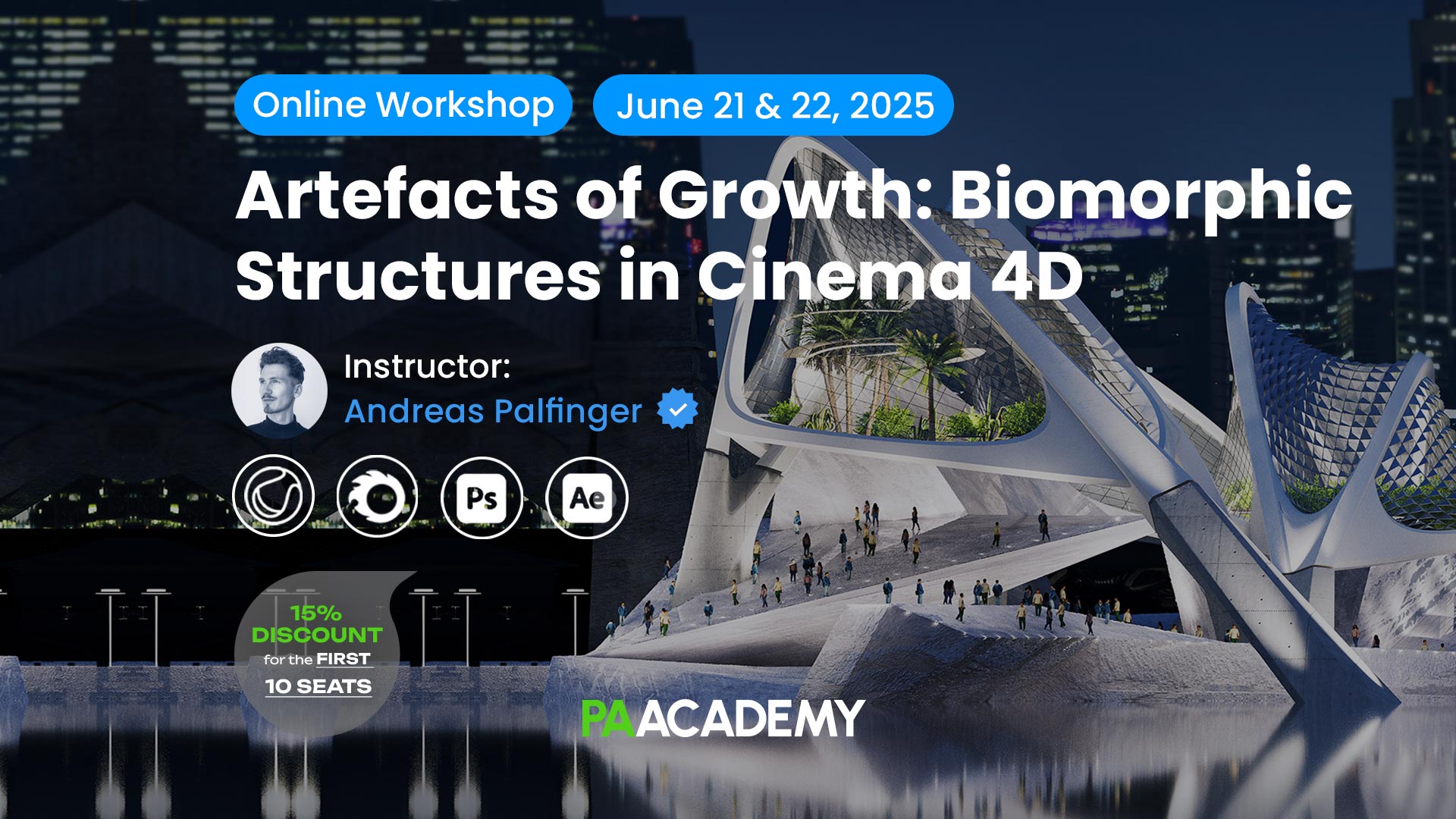
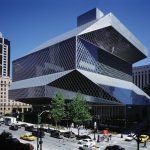

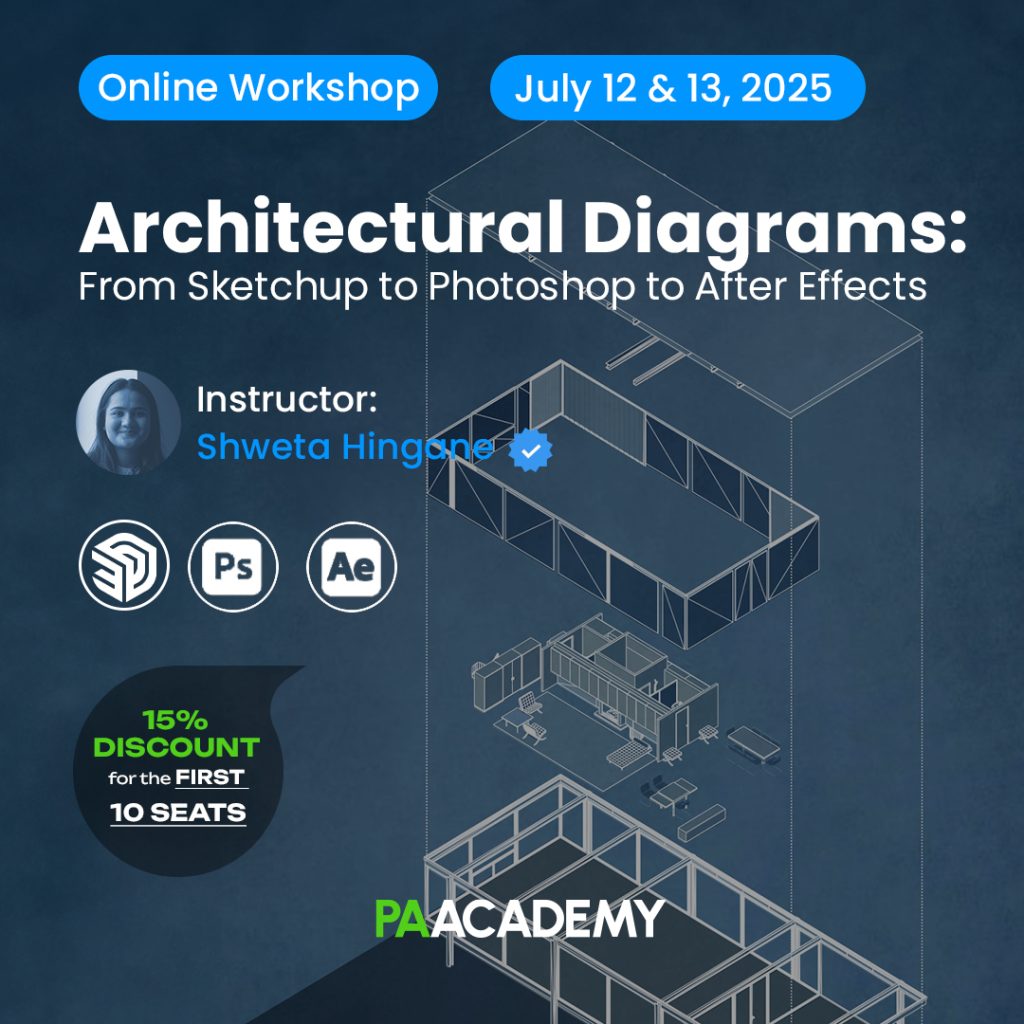
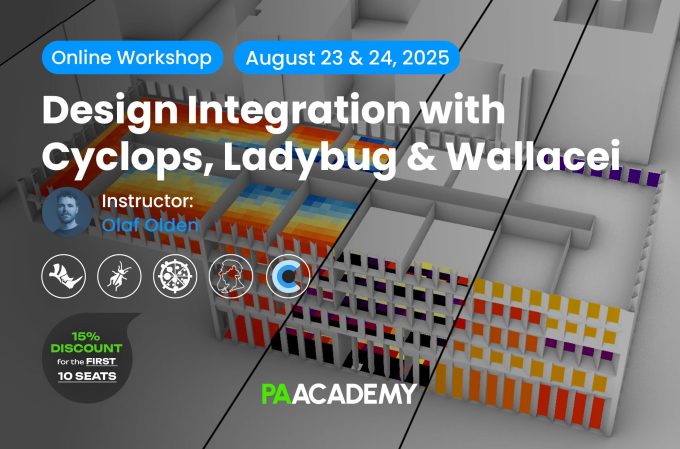
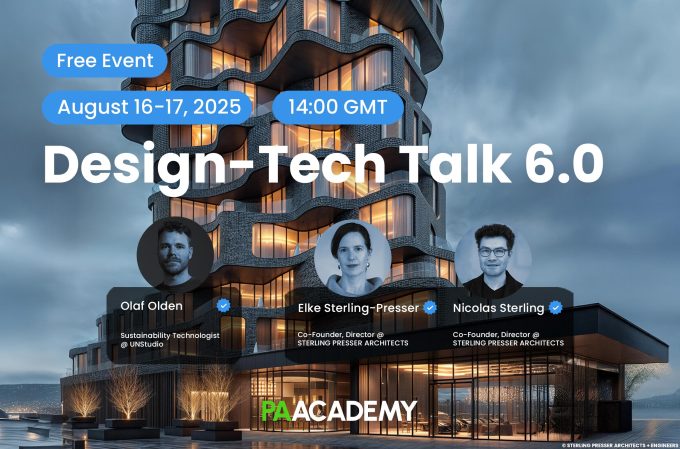
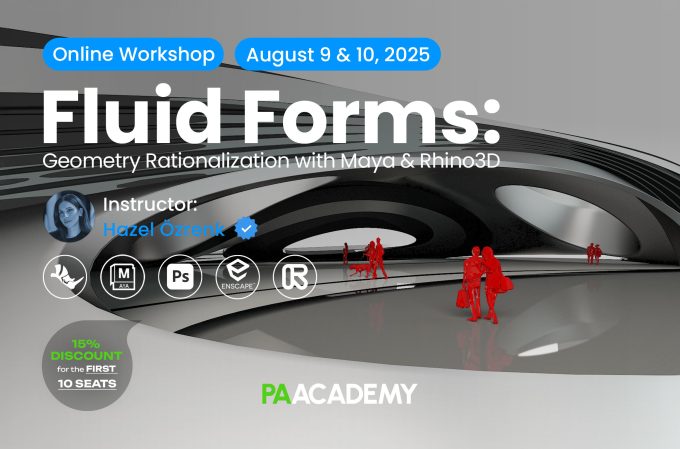
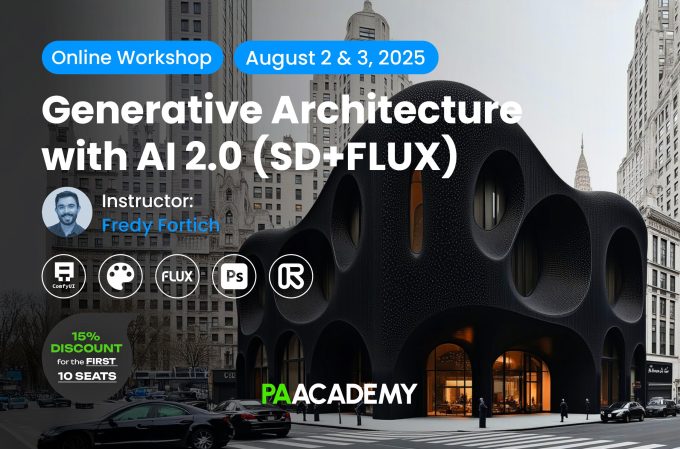




I have the following two questions
1. will this workshop be conducted in English?
2. Will this workshop be team-based? I would like to know if the final presentation will be done on an individual basis and not on a team basis.
Thanks for reaching out. Here I can provide you with the requested information.
1. The entire workshop will be in English.
2. For sure you can choose to work in groups or work individually. If you work in a team, your presentation will be a team presentation. If you work as an individual, your presentation is considered as an individual work.
I hope this helps.
Dear Hamid
Thank you for the reply !